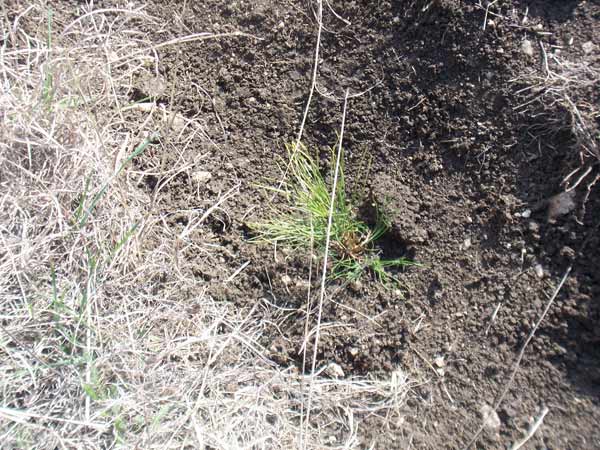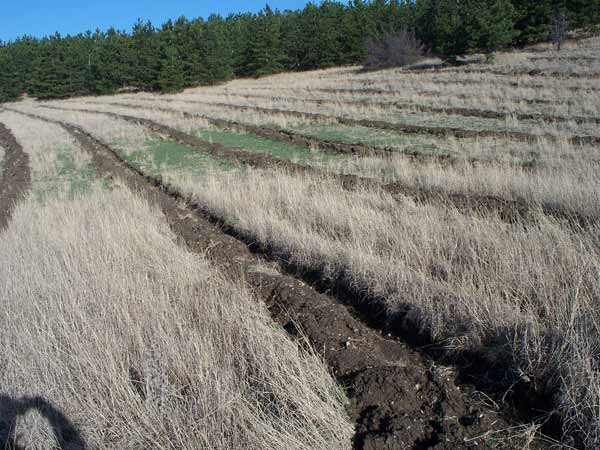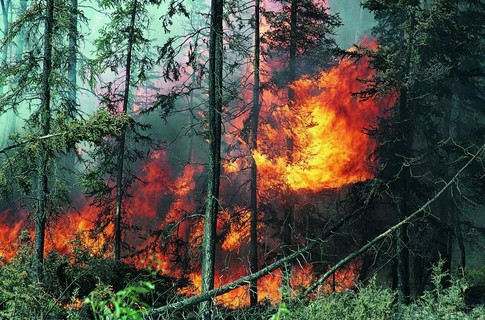About forests
Forests in Republic of Macedonia
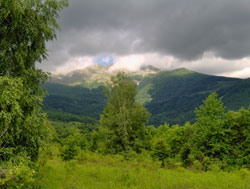 Republic of Macedonia occupies 2.543 200 ha of the land. According to the latest data of the Special plans of woods management which are for commercial use (statement,2008), total forest area in RM amounts to 1.091.857,59 ha, from which 835.055,82 ha are totally forest covered area and 256.801,77 ha of the forest is non-covered forest area (bare lands).
Republic of Macedonia occupies 2.543 200 ha of the land. According to the latest data of the Special plans of woods management which are for commercial use (statement,2008), total forest area in RM amounts to 1.091.857,59 ha, from which 835.055,82 ha are totally forest covered area and 256.801,77 ha of the forest is non-covered forest area (bare lands).
It should be mentioned that there are still 80.000 ha or 7,32% forest and forest land with small commercial importance for which are no processed Forest-commercial bases.
The forest covered area occupies 255.444,74 ha high trunk forest plants, 546.179.40ha low trunk forest plants, 14.459,50 ha forest herbs and 18.978,18 ha are under bushes.
Total forest reserve according to the same data base amounts to 75.939.573 m3, that is 91 m3/ha. Total annual growth amounts to 1.616.782 м3, that is 1.93 m3/ha.
Total anticipated growth for 10 years amounts to 10.948.149 m3, or annually 1.094.815m3. Its exploitation amounts to 75%.
According to the statistical year book of Republic of Macedonia 2004 (January.10.Forestry), Public statistics institute of Republic of Macedonia, 90,14% of the total forest area in RM are in public ownership, while in the total wood reserve the Public sector participates with 92,20%. Private forests participate with 9.86% of total forest area and participate with 7.8% of the total wood reserve.
Forestry in Republic of Macedonia is economic branch which in gross national product participates with 0.3 to 0.5 %, however if we give value to the generally useful functions, the contribution is considerably greater.
Forests management in Republic of Macedonia is based on complexity, multifunctional and permanent production where we take care of relations for healthy forests, ecologic principles of environment preserving and nourishment and woods renewal.
Forests occupies almost one third of dry land of the planet Earth and as a rule are found at those locations where, because of unfavorable climate, sterile land ,inaccessible regions and land configuration, are inconvenient for agricultural production or other use. According to survey of absolute of 35% and relative forested area of 0,47hA per citizen, Republic of Macedonia, with area 2 571 000 ha and number of citizens 1 909 000 and forest covered land 835.055,82ha, is on the lowest part of surveys in the region( in front of Slovenia and Monte Negro).
The natural conditions of R.M conditioned by location, climate, relief, geologic structure of terrain, hydrologic-hydrographic features and similar, enable existence and growth of great number of plant and animal species. Because of that, our country belongs to countries with rich biodiversity. A great number of plant and animal species are relics and endemic as well.
The flora representing the forests in R. M comprise 319 sorts of trees and bushes with more than 80 subtypes and varieties within 119 genes and 54 families, and 16% of total number of species are endemic or sub endemic on the Balkans. According to the previous explorations wood sorts of trees and bushes create 81 wood phytocenosis within 31 associations, 11 genes and 6 classes.
Based on various useful functions of forests, R.M treats the forests as part of national wealth and inheritance. Confirmation for that is Constitution of Republic of Macedonia, where plant and animal world, properties in general use, as well as subjects and objects of special cultural and historical importance are defined with law and there are properties of general interest for the Republic and have a special protection”.
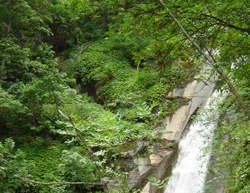 Traditionally, forests and forest land are most frequently understood by the society as resources which give material welfare, mainly wood and other wood products as medical plants, parts of plants, mushrooms, fruits and etc. Besides the economic function, woods have other various useful functions for the society as in: recreation of people, multifunctional protective function especially regarding protection of biodiversity and stopping the erosion, amicable climate influence and water regime, oxygen production and environment quality etc. In recent years a great importance is given to the forests in reduction of carbon dioxide as one of gases which contributes in greenhouse effect. These and other important functions of forests are in correlation with their condition and structure, regarding to the area and quality.
Traditionally, forests and forest land are most frequently understood by the society as resources which give material welfare, mainly wood and other wood products as medical plants, parts of plants, mushrooms, fruits and etc. Besides the economic function, woods have other various useful functions for the society as in: recreation of people, multifunctional protective function especially regarding protection of biodiversity and stopping the erosion, amicable climate influence and water regime, oxygen production and environment quality etc. In recent years a great importance is given to the forests in reduction of carbon dioxide as one of gases which contributes in greenhouse effect. These and other important functions of forests are in correlation with their condition and structure, regarding to the area and quality.
The economic, social and ecologic function of the forests is of great importance for the sustainable development of the society and for life quality improvement, especially in rural and mountain regions.
The public enterprise for managing with forests is in ownership of Makedonski sumi and operates with public forests in Republic of Macedonia. The public enterprise in this time passes through various complex periods with numerous problems and contradictions which are more or less solved successfully.
The public enterprise “Makedonski sumi” was established with decision of the Government on December.15.1997 and began to operate on July.1.1998 as legal successor of more economic entities which up to the establishment were managing with forests.
In the first years of independence, the Republic of Macedonia was faced with difficult transition period when the economic and political system had to be quickly reconstructed, and with that the economy itself. The transitional period was additionally impeded because of complex social and economic situation.
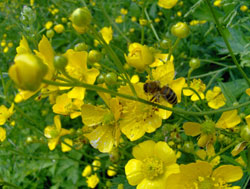 The various negative appearances in development of society and economy had an impact also on Forest sector. And besides difficult economic condition and inherited dubious the public enterprise “Makedonski sumi” operates as an important subject in the Republic of Macedonia, following the political and economic changes in the Republic of Macedonia in accordance with euro integration processes which demand priorities and focusing on useful functions of forest and its managing, integration in more wide context where protection, biodiversity and concern for nature and environment are on above all. The Republic of Macedonia has signed and ratified a lot of international contracts and conventions for protection of forests and environment which have an impact on forestry sector. The orientation of country towards EU requires harmonization of forest politics and its obligations.
The various negative appearances in development of society and economy had an impact also on Forest sector. And besides difficult economic condition and inherited dubious the public enterprise “Makedonski sumi” operates as an important subject in the Republic of Macedonia, following the political and economic changes in the Republic of Macedonia in accordance with euro integration processes which demand priorities and focusing on useful functions of forest and its managing, integration in more wide context where protection, biodiversity and concern for nature and environment are on above all. The Republic of Macedonia has signed and ratified a lot of international contracts and conventions for protection of forests and environment which have an impact on forestry sector. The orientation of country towards EU requires harmonization of forest politics and its obligations.
Current conditions necessitate creation of effective system of multifunction managing with forests and development of modern forest industry with high standards.


